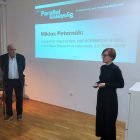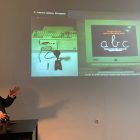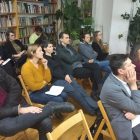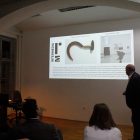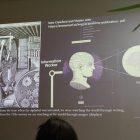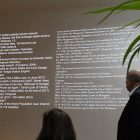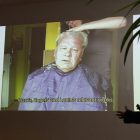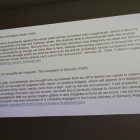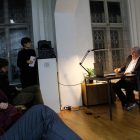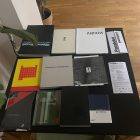Lecture
Thursday, 14 November 2019, 6 pm
Project Room SCCA, Metelkova 6, Ljubljana
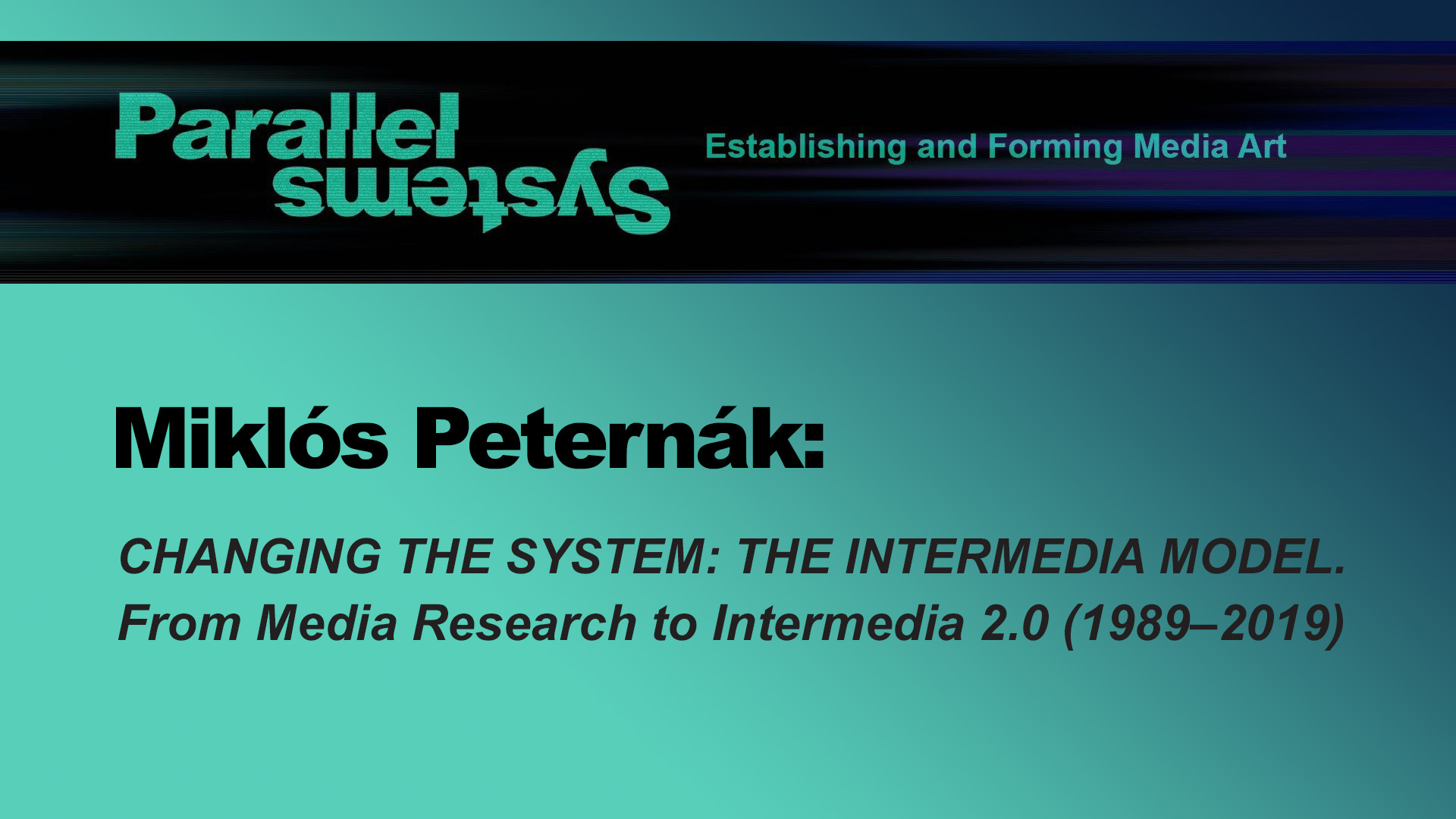
The lecture will mainly focus on the establishment and development of the Intermedia Department at the Hungarian University of Fine Arts, Budapest, with a raw peripheral view of the changing techno-cultural environment during the last 30 years, between 1989 and 2019. The emergence of Intermedia was the result of the change of regime in Hungary. The curriculum was built around the core concepts of the artistic use of the new media, the unity of theory and practice with a perspective which regards science, technology and art holistically. The main characteristics of intermedia are more related to experiment and experience not to expression. Contemporary artists should think, explore, create, comprehend, act, communicate and for this purpose they may use any accessible tools, any media: old, new, analogue, digital or not-yet-invented. Intermedia intends to provide relevant answers to current actual questions, like: What is the role of the artist after the collapse of the dual world model in the „global village” which considers art as a subordinate of the manipulated public attention?
 Miklós Peternák works as a curator, lecturer and writer. He studied history and history of art, PhD 1994: New Media – Art and Science. He was a member of the Béla Balázs Studio (1981–1987) and the Indigo-Group. Head of the Intermedia Department at the Hungarian University of Fine Arts since its foundation, director of C³: Center for Culture and Communication since 1997. Peternák has produced films and videos in the 1980’s and published several texts on art and media history, he curated the exhibition of Hajnal Németh in the Hungarian Pavilion at the 54th Venice Art Biennale. (Photo: Brigitta Zics)
Miklós Peternák works as a curator, lecturer and writer. He studied history and history of art, PhD 1994: New Media – Art and Science. He was a member of the Béla Balázs Studio (1981–1987) and the Indigo-Group. Head of the Intermedia Department at the Hungarian University of Fine Arts since its foundation, director of C³: Center for Culture and Communication since 1997. Peternák has produced films and videos in the 1980’s and published several texts on art and media history, he curated the exhibition of Hajnal Németh in the Hungarian Pavilion at the 54th Venice Art Biennale. (Photo: Brigitta Zics)
Photo: SCCA-Ljubljana archive and Qëndresë Deda
Series Parallel Systems. Establishing and Forming Media Art is organised by School for Curatorial Practices and Critical Writing World of Art (SCCA-Ljubljana) and Igor Zabel Association for Culture and Theory in partnership with the ŠUM journal, Goethe-Institut Ljubljana, The Cultural Center of the Embassy of the Republic of Hungary in Slovenia, the Balassi Institute Ljubljana, Museum of Modern Art/Moderna galerija and Trubar Literature House.
Organized by: World of Art, Igor Zabel Association for Culture and Theory
The programme is supported by: City of Ljubljana – Department for Culture, ERSTE Foundation and Zaklada Kultura nova.
![]()
![]()
![]()
![]()
![]()
![]()
![]()

